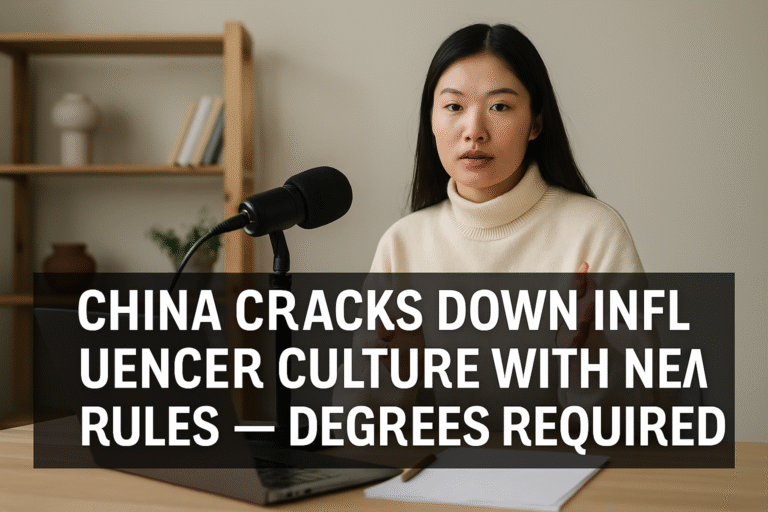The Cyberspace Administration of China (CAC) has rolled out sweeping new rules aimed at influencer culture in China. Under guidelines that took effect on October 25, 2025, creators on platforms such as Douyin, Bilibili and Weibo will be required to hold formal credentials (like a university degree or professional licence) before discussing regulated topics including medicine, law, education or finance.
Key Details
- Influencers who talk about medical advice, legal guidance, financial tips, or educational content must now provide proof of expertise, such as a degree or certification.
- Platforms are being tasked with verifying those credentials and ensuring that content includes research‑citations and disclaimers where required.
- The CAC is also banning certain types of advertising—particularly for dietary supplements, health foods and other medical‑adjacent promotions—to prevent disguised educational content.
- The rule has sparked social debate: some say it’s a necessary step to curb misinformation; others argue it’s a new form of censorship that limits public discourse and creativity.
Why It Matters
This regulation marks a notable shift in how China is managing its digital ecosystem—and specifically the influencer economy that has exploded in recent years.
- On one side, it could improve public safety by reducing unqualified advice on health, finance, education and law.
- On the other side, it raises concerns about freedom of expression and who gets to define “qualified voice.”
- For brands, creators and platform operators, the stakes are high: non‑compliance could result in fines, account suspensions or removal from monetisation programmes.
- The move also signals how governments may approach influencer regulation globally as social media grows in influence and as misinformation becomes a bigger concern.
What to Watch Next
- How strictly the platforms enforce the verification process and what criteria they use to accept or reject credentials.
- Whether similar regulations emerge in other countries looking to regulate influencer marketing and social media advice.
- How creators adapt: Will they shift to “unregulated” topics, change their content strategy, or risk non‑compliance?
- Whether this will significantly reduce harmful misinformation or simply push it into unmoderated channels.


0 Comments